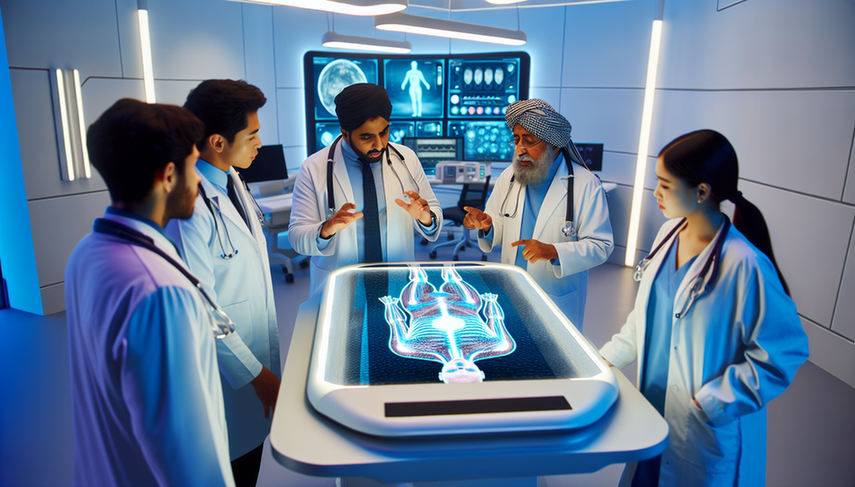Digital Transformation and New Medical Competencies: The Role of AI and Intelligent Systems in Shaping the Doctor of the Future

The digital transformation in the medical field is redefining the new medical competencies necessary for the doctor of the future. In this context, intelligent systems and emerging technologies are playing a crucial role. Artificial intelligence (AI) has become an essential component in modern medical practice, offering advanced tools for diagnosis, data management, and personalized treatment.
The Impact of AI on Modern Medicine
AI is revolutionizing medicine on multiple fronts. In the field of diagnostic pathology, for example, AI is enhancing the accuracy and speed of diagnosis through the use of advanced algorithms and computer-assisted diagnostic techniques. This not only optimizes workflows in pathology but also drives precision medicine in oncology.
Moreover, the digitalization of clinical trials is transforming how they are conducted, allowing for broader access and greater patient participation. Digital technologies facilitate data collection and analysis through artificial intelligence and machine learning, which can reduce costs and improve the efficiency of trials.
In the realm of women's health, AI and robotics are beginning to close equity gaps in access to healthcare, providing tools for personalized medicine and early disease diagnosis.
Conclusions: Preparing for the Future
The integration of AI into medical practice not only requires the adoption of new technologies but also the development of new medical competencies that enable healthcare professionals to use these tools effectively. Medical education must adapt to include training in emerging technologies and intelligent systems, ensuring that the doctors of the future are prepared to face the challenges of a digitized healthcare environment.
In conclusion, digital transformation is redefining the role of the physician, and AI is a central component in this evolution. Physicians must be ready to embrace these technologies and develop the necessary competencies to use them effectively, thereby ensuring quality healthcare in the future.
Referencias
- [1] Artificial intelligence in diagnostic pathology
- [2] Digitizing clinical trials
- [3] Empowering Women's Health: A Global Perspective on Artificial Intelligence and Robotics
Created 20/1/2025
